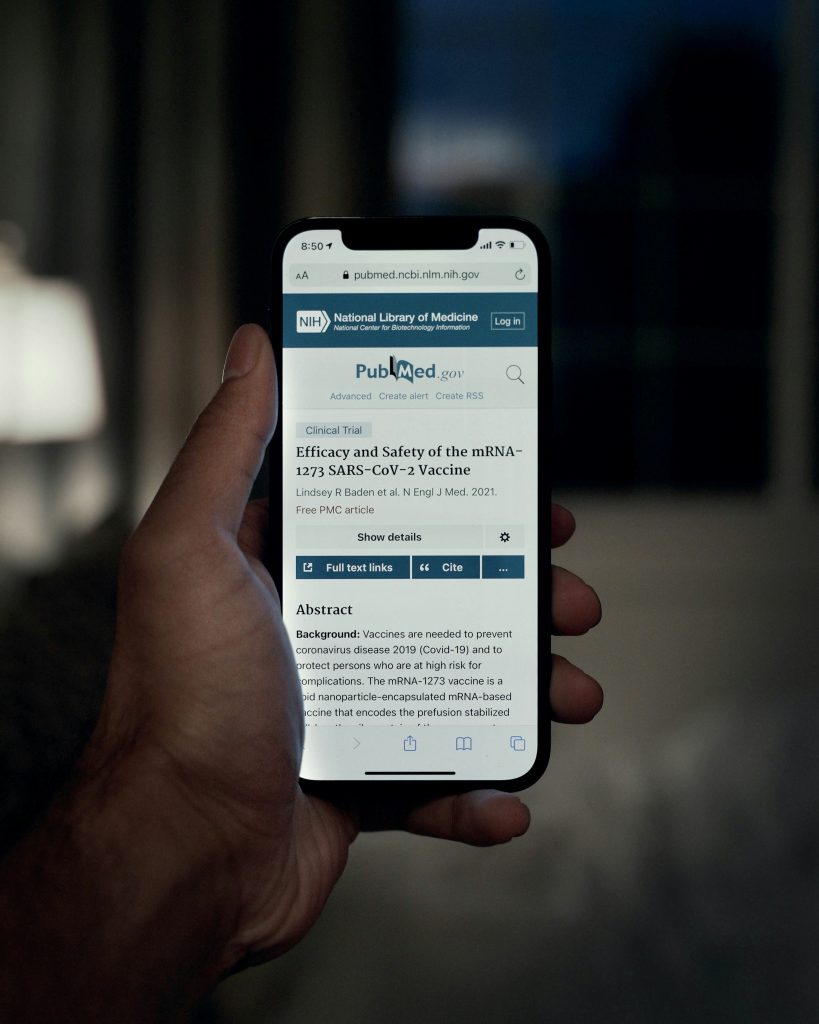In the video titled “Customers Are Not ALWAYS RIGHT | Plumbing 101,” Roger Wakefield, the host of the channel, discusses situations where the customer is not always right in the context of a residential service company. The video emphasizes the importance of recognizing when a customer is not right, as it can save time and money. Wakefield provides plumbing education for homeowners and guidance for plumbers and plumbing company owners to run successful businesses. He mentions various social media platforms, such as Facebook, LinkedIn, Twitter, and Instagram, where viewers can follow and engage with his channel. The video also mentions affiliate links in the description that allow viewers to support the channel by purchasing the mentioned items, although it is not obligatory.
Wakefield highlights the fact that not all customers are right and addresses situations where customers refuse to pay for services or demand free services. He emphasizes that customers should be willing to pay for the services provided by the company and that customer service can be affected when customers make unreasonable demands. Wakefield also discusses the importance of documentation to counter false claims made by customers and acknowledges that not every customer can be satisfied. He emphasizes the need to support employees when dealing with customers who are not right and emphasizes the importance of trust and training in providing proper customer service. Lastly, he highlights that recognizing that customers can be wrong is crucial in running a successful plumbing business.
Importance of Realizing When a Customer is Not Right
As a residential service company owner, we understand the importance of recognizing when a customer is not right. It not only saves us time but also helps us save money in the long run. In our experience dealing with different customers, we have come across situations where the customer claims they are always right. However, it is crucial to understand that this is not always the case. In this article, we will discuss the impact of realizing when a customer is not right and how it affects customer service.
Saving Time and Money
Realizing when a customer is not right can save us a significant amount of time and money. When a customer is not satisfied or disagrees with our pricing or service, it can lead to lengthy and unproductive discussions. Instead of wasting time trying to convince them or adjusting our prices to meet their demands, we can focus our energy on serving our target customers who value our services and are willing to pay for them. This allows us to streamline our operations and allocate our resources more efficiently.
Video Discusses Situations Where the Customer is Not Always Right
In our video titled “Customers Are Not ALWAYS RIGHT | Plumbing 101,” we dive into different scenarios where the customer is not always right. We understand that this may contradict the widely popular belief that the customer is always right. However, with years of experience in the plumbing industry, we have encountered customers who continuously claim they are right, even when faced with evidence suggesting otherwise.
Emphasizing the Importance of Recognizing When a Customer is Not Right
It is essential to emphasize the importance of realizing when a customer is not right. By doing so, we can maintain the integrity of our services, handle challenging customer situations more effectively, and preserve our company’s resources. Recognizing when a customer is not right enables us to provide superior customer service to those who genuinely appreciate and value our expertise.
Impact on Customer Service
When customers demand free services or try to dictate our pricing, it has a detrimental impact on the overall customer service experience. We take pride in going above and beyond to satisfy our customers, but it becomes difficult when customers refuse to acknowledge the value of our services. By recognizing when a customer is not right, we can maintain our professionalism and ensure that our customer service remains top-notch for those who truly deserve it.
Following and Engaging with the Channel on Social Media
We encourage our audience to follow and engage with our channel on various social media platforms such as Facebook, LinkedIn, Twitter, and Instagram. These platforms provide an excellent opportunity for our viewers to stay updated with our latest content, interact with us, and participate in discussions related to plumbing education and successful business practices.

Social Media Platforms Mentioned
Our channel is active on Facebook, LinkedIn, Twitter, and Instagram. By following us on these platforms, our audience can gain valuable insights into plumbing education, learn tips and tricks for homeowners, and gain knowledge on how to run successful plumbing businesses.
Benefits of Following the Channel
Following our channel on social media offers many benefits. Our viewers can stay updated with our latest videos, receive notifications about live Q&A sessions, and gain access to exclusive content. It also provides an opportunity to connect with other like-minded individuals in the plumbing industry, share experiences, and learn from one another. Additionally, following our channel allows you to support our work and help us continue providing valuable information to our audience.
How to Engage with the Channel
Engaging with our channel on social media is simple. You can like, comment, and share our videos to show your support. We highly encourage our viewers to ask questions, provide feedback, and suggest topics they would like us to cover in future videos. Engaging with us enables us to create a community where we can all learn and grow together.
Affiliate Links in Video Description
In the video description, you may find affiliate links that allow you to find the products or services mentioned in the video. Clicking on these links will not cost you anything extra, but it will help support our channel. However, it is important to note that the use of these affiliate links is entirely optional, and viewers are not obligated to use them.
Customers Who are Never Right
While the majority of our customers are reasonable and understanding, there are always a few who seem to believe they are always right, regardless of the circumstances. These customers can be challenging to deal with, as they refuse to accept any other perspective and can become confrontational.
Some Customers Always Claim They are Right
In our experience, we have encountered customers who consistently claim they are right, even when presented with evidence to the contrary. These individuals may have a tendency to argue, refuse to listen to reason, and attempt to manipulate the situation to their advantage. It is essential to recognize these customers and handle their requests or complaints with caution.

Customers Who Don’t Want to Pay for Services
Another type of customer who is never right is the one who does not want to pay for the services we provide. As a professional plumbing company, we have operating costs, including paying our plumbers, apprentices, and customer service representatives. It is only fair that customers contribute financially for the expertise and quality service they receive.
Considering Paying Customers
When assessing whether a customer is right or not, it is crucial to consider whether they are a paying customer. Customers who refuse to pay, try to negotiate excessively low prices, or demand free services fall into the category of not being right. It is important to focus on serving customers who are willing to pay for the services we offer and deliver the value they deserve.
Maintaining Boundaries
Recognizing when a customer is not right helps us maintain boundaries and establish clear guidelines for our services. By setting these boundaries, we ensure that we do not compromise the value of our work, maintain profitability, and uphold the standards of our company. It is essential to establish these boundaries and make it clear to customers that our services have a cost associated with them.
The Importance of Customers Paying for Services
Customers paying for the services we provide is crucial not only for the financial stability of our business but also for maintaining the value of our services. When customers demand free services or try to dictate pricing, it undermines the expertise and effort that goes into providing high-quality plumbing services. By requiring customers to pay for our services, we can ensure that our work is valued and appreciated.
Impact on Customer Service
Allowing customers to demand free services or dictate pricing has a significant impact on customer service. It creates a precedent that can lead to unreasonable customer expectations and unfair practices. By recognizing the importance of customers paying for our services, we can maintain the integrity of our customer service and provide value to those who truly appreciate it.
Customers Demanding Free Services or Dictating Pricing
Customers who demand free services or try to dictate pricing undermine the fair and transparent business practices we strive to maintain. It is important to communicate the value of our services and ensure that customers understand the cost associated with the expertise, equipment, and time required to complete their plumbing projects.

Maintaining the Value of Services
Requiring customers to pay for our services allows us to maintain the value of what we offer. If we were to provide free services or allow customers to dictate pricing, it would undermine the quality and professionalism of our work. By maintaining the value of our services, we can ensure that our customers receive the best possible experience and maintain a reputation for excellence in the industry.
Understanding That Not All Customers Will Buy or Pay
It is essential to understand that not all customers will choose to buy our products or pay our prices. This realization is crucial to maintain a healthy and realistic perspective on customer interactions. Instead of attempting to please everyone, we should focus on our target customers who align with our products, services, and pricing.
Accepting Customers’ Decisions
Understanding that not all customers will choose to buy our products or pay our prices requires accepting their decisions. It is important to respect their choices and recognize that they may have different preferences, needs, or budgets. Instead of trying to convince them otherwise, we can focus on serving those who appreciate and value what we offer.
Customers Who Don’t Want to Buy or Pay
Some customers may express an interest in our products or services but ultimately decide not to buy or pay for them. It is crucial to respect their decision and not pressure or manipulate them into purchasing. By understanding that not all customers will buy or pay, we can maintain a positive and respectful relationship with our potential customers.
Respecting Customers’ Choices
Respecting customers’ choices and decisions is paramount to maintaining a strong customer-centric approach. Even if a customer opts not to buy or pay, we should continue to treat them with respect and professionalism. This approach builds trust and goodwill, which can lead to future business opportunities or referrals.
Importance of Focusing on Target Customers
Focusing on our target customers allows us to allocate our resources more efficiently and provide specialized services that cater to their specific needs. By understanding our ideal customer profile, we can tailor our marketing efforts, pricing strategies, and service offerings to attract and retain the customers who align with our business objectives.

Negative Impact of Customers Who are Not Right
Customers who are not right can have a negative impact on various aspects of our business. The most immediate and direct impact is on the customer service experience. Unreasonable customer demands, disputes over pricing, or refusal to pay can create tension and dissatisfaction for both our team members and the customers who genuinely appreciate our services.
Customer Service Experience
When customers are not right, it can lead to a poor customer service experience. Our team members may face difficult interactions and feel frustrated or demoralized when customers refuse to acknowledge the value of our services. This can lead to a decline in overall customer satisfaction and potentially damage our reputation.
Challenges with Satisfying Customers
Customers who are not right create unique challenges when it comes to satisfying them. Their unrealistic expectations and demands often exceed what we can reasonably provide. Striving to please these customers can lead to a compromised service quality and a strain on our resources. It is important to assess each customer situation and determine the best course of action for maintaining customer satisfaction while protecting our business interests.
Effects on Employee Morale
Customers who consistently claim they are right, refuse to pay, or demand free services can have a negative impact on employee morale and motivation. Our team members may feel disheartened, unappreciated, or unvalued when dealing with such challenging customers. To counteract this, it is crucial to support our employees and provide a positive work environment that acknowledges their efforts in delivering exceptional customer service.
Maintaining a Positive Work Environment
Creating and maintaining a positive work environment is essential for long-term business success and employee satisfaction. By proactively addressing challenging customer situations and supporting our employees, we can foster a positive and cohesive team that is dedicated to providing excellent customer service. It is essential to address any issues promptly and ensure open communication channels within our organization.
Addressing Dishonesty and False Claims
Customers who engage in dishonest behavior, such as lying about interactions or making false claims, pose unique challenges for our business. These individuals can cause significant disruptions, damage our reputation, and potentially harm our relationships with other customers. It is crucial to address dishonesty and false claims promptly and take appropriate action to protect our business interests.

Customers Lying About Interactions
Unfortunately, some customers may be dishonest and lie about the interactions they have had with our company. These false claims can negatively impact our reputation and lead to misunderstandings or disputes. To address this issue, we prioritize documentation and record all customer interactions accurately. This documentation serves as evidence in case we need to prove that the customer’s claims are false.
Importance of Documentation
Documentation plays a vital role in addressing dishonesty and false claims. By keeping a detailed record of customer interactions, we can refer back to specific conversations, agreements, or estimates, allowing us to refute false claims effectively. Documentation also enables us to maintain transparency and strengthen our credibility as a professional plumbing service provider.
Proving Customers Wrong with Proof
When confronted with dishonest customers, we rely on our robust documentation to prove them wrong. By presenting evidence of what truly transpired, we can demonstrate the accuracy of our statements and protect our reputation. Proving customers wrong with proof helps maintain our integrity and ensures that justice is served in each customer interaction.
Handling Dishonest Customers
Handling dishonest customers requires caution and professionalism. We avoid engaging in confrontations or heated arguments, as this can further escalate the situation. Instead, we focus on presenting our evidence calmly and objectively, clearly stating our perspective, and seeking resolution through open communication and understanding. In some cases, it may be necessary to involve legal measures to protect our business’s interests.
Letting Go of Unsatisfiable Customers
Recognizing unsolvable situations is an essential aspect of maintaining a successful business. Sometimes, despite our best efforts, we cannot satisfy certain customers. In these cases, it is crucial to let go of these customers and focus on maintaining positive customer interactions with those who appreciate and value our services. Letting go of unsatisfiable customers allows us to preserve our company resources and allocate them where they will yield the most significant returns.
Recognizing Unsolvable Situations
It is important to recognize unsolvable situations where no matter what we do, we cannot meet the customer’s expectations or demands. These situations can drain our resources, cause unnecessary stress, and negatively impact our team’s morale. By acknowledging the limitations of our abilities and knowing when it is time to move on, we can focus on serving customers who truly appreciate and benefit from our services.
Important to Move On from Unsatisfied Customers
Moving on from unsatisfied customers is a necessary step to ensure our business’s growth and success. Continuing to invest time and energy into customers who cannot be satisfied not only hinders our progress but also affects our team’s motivation and overall morale. By redirecting our efforts towards providing exceptional service to satisfied customers, we can create a more sustainable and prosperous business model.
Focusing on Positive Customer Interactions
Once we have identified and let go of unsatisfiable customers, it is crucial to redirect our focus towards positive customer interactions. By investing our time and resources into serving customers who appreciate and value our services, we can enhance their experience and create a loyal customer base. Focusing on positive customer interactions helps us build a strong reputation, generate referrals, and drive business growth.
Preserving Company Resources
Letting go of unsatisfiable customers is essential for preserving our company resources. By reallocating our resources towards serving satisfied customers and pursuing new business opportunities, we optimize our operational efficiency and ensure a sustainable business model. Preserving company resources allows us to invest in growth, innovation, and maintaining high-quality service standards.
Supporting Employees When Customers are Not Right
Supporting our employees is crucial when dealing with challenging customer situations. In the face of difficult interactions or unreasonable demands, it is essential to provide our team members with the necessary tools, training, and guidance to handle these situations professionally and effectively. By supporting our employees, we foster a cohesive team that can navigate challenging customer interactions and maintain a positive work environment.
Importance of Employee Support
Providing support to our employees is a fundamental aspect of effective customer service management. Our employees are on the front lines of customer interactions and need to feel supported, valued, and equipped with the necessary skills to handle difficult situations. By investing in their training, providing ongoing support, and promoting a positive work environment, we ensure that our team can deliver exceptional customer service consistently.
Trusting and Training Employees
Trusting our employees and providing them with the necessary training is crucial when it comes to handling difficult customer situations. By empowering our team members with the skills and knowledge they need to navigate challenging interactions, we allow them to make informed decisions and represent our company effectively. Trusting our employees’ judgment builds confidence and fosters a sense of ownership and accountability.
Handling Difficult Customer Situations
When faced with difficult customer situations, it is essential to approach them with professionalism and empathy. Our employees should be trained to actively listen, understand the customer’s concerns, and find mutually beneficial resolutions. By handling difficult customer situations effectively, we can turn potential conflicts into opportunities for building trust, loyalty, and lasting customer relationships.
Creating a Cohesive Team
Supporting employees when customers are not right is crucial for creating a cohesive team that can navigate challenging situations together. By promoting open communication, encouraging collaboration, and providing opportunities for growth and development, we foster a positive work environment where employees feel valued, motivated, and empowered to deliver exceptional customer service.
Conclusion
In conclusion, we must recognize and address challenging customer situations where the customer is not always right. Realizing when a customer is not right allows us to save time and money, maintain a strong customer service approach, and preserve the integrity of our services. By following and engaging with our channel on social media, customers can stay updated with valuable plumbing education and contribute to our community. Letting go of unsatisfiable customers, supporting our employees, and focusing on positive customer interactions are key to maintaining a thriving business. By understanding the importance of recognizing when a customer is not right, we can navigate challenging situations effectively and ensure the long-term success of our plumbing company.

